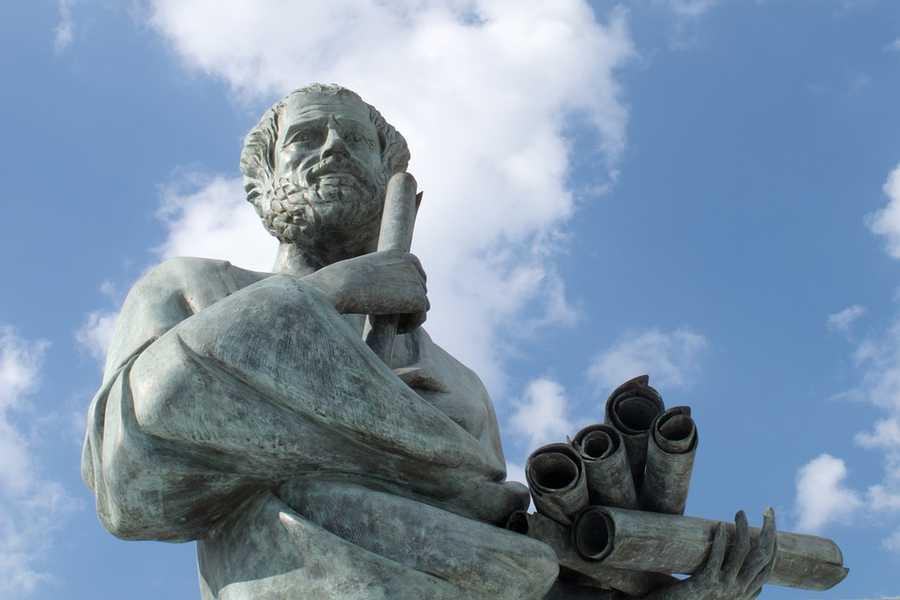Do You Know The Meaning of The Good Life?
Curated from: thoughtco.com
Ideas, facts & insights covering these topics:
7 ideas
·4.83K reads
18
Explore the World's Best Ideas
Join today and uncover 100+ curated journeys from 50+ topics. Unlock access to our mobile app with extensive features.
The Meaning of a Good Life
One of the oldest philosophical questions is the meaning of living well. Philosophers have delved into the hidden complexities of how should one live and what is the concept of the good life.
Being honest, trustworthy, kind, and principled is one way to express one’s goodness, in the moral sense. Being virtuous, righteous and selfless has always been given priority over the other ‘good’ things like pleasure, wealth and power.
177
958 reads
Plato And Socrates on Living a Moral Life
- The Greek philosopher Socrates stated that it is better to suffer and die than to be corrupted and use one’s wealth and power in a dishonourable way.
- Plato claimed that being morally good has an inner harmony, while a dishonest, wicked person is always at unease, and in a disharmonious state of being.
187
827 reads
Morality and Religions
- Believers Of God, both in east and west, believe that good, pious deeds and intentions are rewarded by God; many people do not receive their reward in this life.
- Hindus believe that Karma will ensure that their good deeds will be rewarded, while evil actions and desires will be punished, either in this life or in future lives.
152
679 reads
Hedonism
The ancient Greek philosopher Epicurus was one of the first to declare, bluntly, that what makes life worth living is that we can experience pleasure. Epicurus praised all kinds of pleasures. But he didn’t advocate that we lose ourselves in them.
Epicurus clarified that the higher pleasures like friendship, academics and virtue are big parts a good life.
159
594 reads
Feel-Good Experiences
The concept of hedonism takes into account visible and subjective experiences. The concept of having feel-good experiences in plenty and ‘living the good life’, is dominant in the Western culture where outward or external pleasures are given value.
140
570 reads
A Fulfilled Life
Aristotle has a holistic approach to the good life. If a person feels happy, satisfied, and content, and is in a positive state of mind, his life can be said to be a good life.
He agrees with Socrates about being morally good to live well. Certain objective conditions like virtue, good health, prosperity, respect from others, and luck come into play for a truly fulfilled life.
166
518 reads
A Meaningful Life
Having a wife and child, along with a day job does not necessarily provide meaning and happiness in a person’s life.
Having a cause greater than oneself, or pursuing a hobby, research project, or artistic creation provides a source of meaning in a person’s life, lifting the overall happiness.
180
686 reads
IDEAS CURATED BY
Gaurav Bhasin's ideas are part of this journey:
Learn more about personaldevelopment with this collection
How to overcome fear of rejection
How to embrace vulnerability
Why vulnerability is important for personal growth
Related collections
Similar ideas
6 ideas
Do You Know The Meaning of The Good Life?
thoughtco.com
6 ideas
3 ideas
What You Should Know About the Philosopher Plato
thoughtco.com
Read & Learn
20x Faster
without
deepstash
with
deepstash
with
deepstash
Personalized microlearning
—
100+ Learning Journeys
—
Access to 200,000+ ideas
—
Access to the mobile app
—
Unlimited idea saving
—
—
Unlimited history
—
—
Unlimited listening to ideas
—
—
Downloading & offline access
—
—
Supercharge your mind with one idea per day
Enter your email and spend 1 minute every day to learn something new.
I agree to receive email updates

